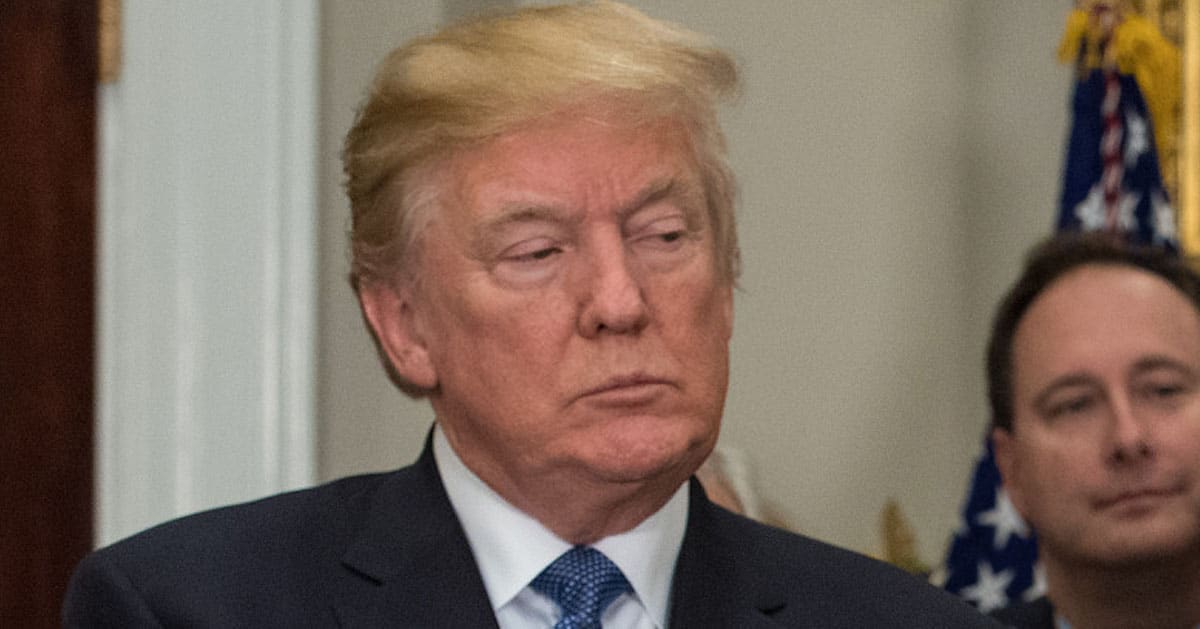



The Department of Homeland Security (DHS) isn't buying the latest media spin. On Monday, the DHS fired back at a Los Angeles Times report accusing its agents of racial profiling during border enforcement operations. The agency’s sharp rebuke calls out what it sees as a tired attempt to smear law enforcement with baseless claims.
Newsmax reported that the Los Angeles Times dropped a story on June 15, 2025, alleging that Border Patrol and ICE agents were targeting individuals based on race during roving patrols and detentions.
DHS and the White House swiftly denounced the report as false, asserting that the operations focus on removing unauthorized criminal migrants. The article’s claims, they argue, are a distortion meant to inflame progressive passions.
The Times’ report, titled with all the subtlety of a protest chant, pointed to an incident where a U.S. citizen was detained for questioning after a protest-related assault on an officer. Sounds like law enforcement doing its job, not a racial witch hunt. Yet the narrative of systemic bias persists, eagerly lapped up by those allergic to context.
DHS didn’t mince words, labeling the Times’ accusations “disgusting” and “categorically false” in a statement posted to its X account.
“These types of smears are designed to demonize and villainize our brave ICE law enforcement,” the agency declared. The pushback suggests a department fed up with being cast as the villain in a progressive morality play.
Tricia McLaughlin, DHS assistant secretary, doubled down, emphasizing that enforcement operations are “highly targeted.” Officers, she said, are trained to ask specific questions to determine an individual’s status and removability. This isn’t random harassment—it’s due diligence in a world where details matter.
“We know who we are targeting ahead of time,” McLaughlin added, underscoring the precision of DHS operations.
The idea of agents roaming the streets, profiling at will, is a fantasy cooked up to score political points. It’s a narrative that thrives on emotion, not evidence.
The White House, not one to sit out a media brawl, was quick to respond to the Times’ inquiries. Spokeswoman Abigail Jackson called the report “shameful regurgitations of Democrat propaganda by activists, not journalists.” Her words cut deep, framing the story as a deliberate distortion meant to shield dangerous policies.
Jackson didn’t stop there. She redirected attention to what she called the “real story” — American victims of crimes committed by unauthorized migrants and the chaos stirred by radical activists. It’s a bold pivot, one that challenges the media to focus on consequences rather than contrived outrage.
The Times’ report leaned heavily on the detention of a U.S. citizen, as if that alone proves systemic bias. But questioning someone tied to a violent protest isn’t profiling—it’s policing. The leap from routine law enforcement to accusations of racism requires more than a single anecdote.
McLaughlin’s statement offered a glimpse into DHS’s playbook: operations are planned, not haphazard.
“If and when we do encounter individuals subject to arrest, our law enforcement is trained to ask a series of well-determined questions,” she said. This is procedure, not prejudice, despite what the Times wants readers to believe.
The DHS statement also tied the agency’s mission to a broader goal: keeping communities safe. “We will follow the president’s direction and continue to work to get the worst of the worst criminal illegal aliens off of America’s streets,” McLaughlin vowed. It’s a promise that resonates with those who prioritize results over rhetoric.
The Los Angeles Times, for its part, framed its story as a public service, warning of “fears of racial profiling.” But fear isn’t fact, and the report’s reliance on vague allegations over hard evidence raises questions about its intent. Is this journalism or activism dressed up as news?
The White House’s response pulled no punches, accusing the Times of peddling propaganda. Jackson’s claim that the story ignores victims of crime while amplifying activist talking points hits a nerve. It’s a reminder that selective storytelling can obscure the human cost of unchecked policies.



